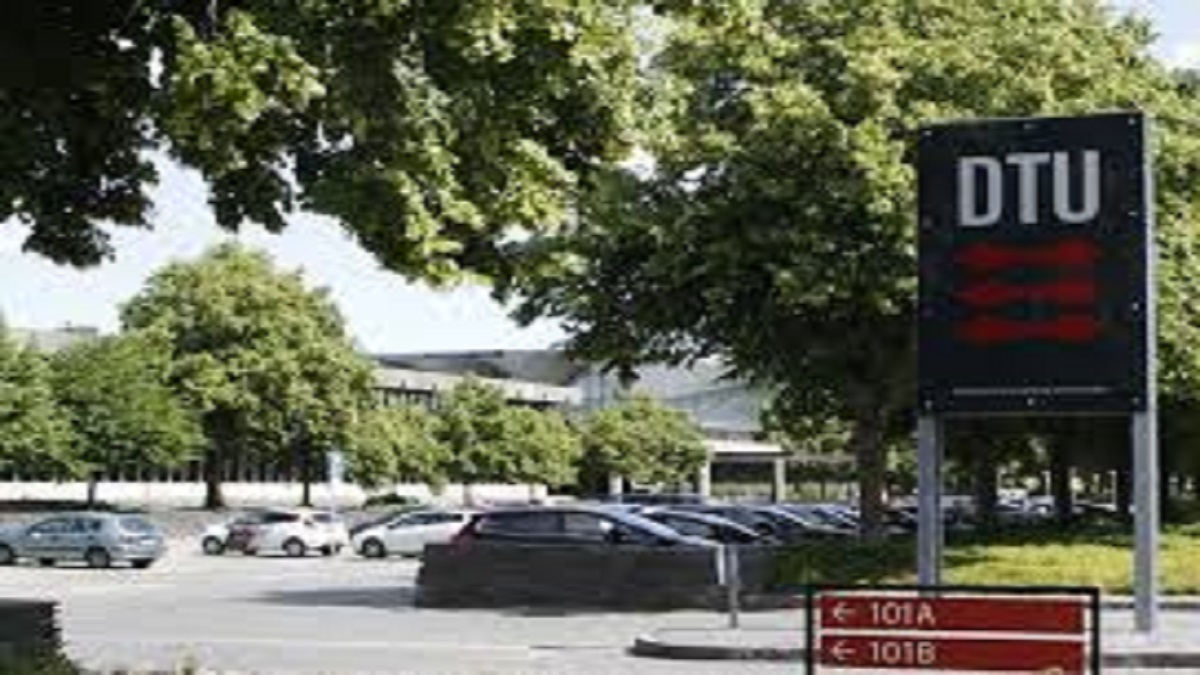
Are you interested in AI for 3D Imaging, and can you take a central role in creating an image analysis platform that links AI and 3D Imaging connecting software development with research? Then read on!
We are looking for a talented and energetic software developer to work on creating an image analysis platform that links AI and 3D imaging. In this position you will implement and test DTU software tools, customize software scripts, and create automatic image analysis pipelines and interfaces.
AI-based deep learning has tremendous potential for analysis of 3D images, and 3D imaging poses a range of difficult and unsolved problems that will lead to new fields of AI research. The 3D images are volumetric scans using µCT, which is widely used for investigating biological systems and understanding the structure of materials. To facilitate research in AI and 3D imaging, we will establish a platform to deploy and develop new deep learning algorithms for large-scale 3D images. With this position, you will become a key person in a small team of IT experts that will design and implement the platform in close collaboration with the researchers that will use the platform. If you want to take part in developing the foundation for the next generation of deep learning image analysis techniques for 3D data, this job could be just for you.
You should have a background in data science or experience in working with data science related projects. This can be experience with image analysis, machine learning, or another field of data analysis, such that you understand the needs in AI research and experimental 3D imaging.
The project concerned with building this platform is part of the Section for Visual Computing and the QIM Center for Quantification of Imaging Data from MAX IV at DTU Compute. In addition to working with the people at DTU Compute you will come in to contact with many collaborators and potential users and it will be part of your job to handle a complex stakeholder landscape in terms of scope, technical issues, as well as implementation and user experience.
The job
You will be part of a group of 2-3 IT experts for building a platform for data storage and analysis, and your role will be to design solutions and test these solutions based on feedback from the users. There will be two groups using this platform. One will be researchers in deep learning for 3D image analysis, who have computer science expertise. The other is imaging researchers, with less experience in computer science. It is, however, essential that the platform meets the needs of both groups, and a core task is to involve the users, understand their needs, and use this as a basis for building the platform.
The image analysis platform will create value when it is used by researchers. Therefore, there is a need for instructing and educating users, and creating material that supports using the platform. All this will be done in close collaboration with researchers in image analysis.
Research in deep learning methods is driven by data. A central part of the work will be to curate data for developing new deep learning methods. This includes implementing state-of-the-art deep learning algorithms and making them available for users, creating labeled data for training and test of deep learning methods, and creating a platform for running and assessing the performance of deep learning methods.
The image analysis platform is part of QIM – the Center for Quantification of Imaging Data from MAX IV, which is affiliated with the 3D Imaging Center at DTU. QIM is a collaboration between DTU, University of Copenhagen, Lund University, and MAX IV, but aims at supporting 3D image analysis beyond the involved universities. Our analysis platform will become a core element in our ambitions of being an internationally recognized science hub within data analysis for 3D imaging.
Our expectations of you
We expect you to have experience with working on complex IT projects with internal and external stakeholders. Ideally, you will have a PhD or a MSc in data science. You should have a strong problem-solving mindset, a drive to learn and collaborate, and experience in finding good solutions for complex IT projects.
The preferred skills are:
- A background in data science and experience with analyzing images.
- Strong programming skills.
- Experience with software development and testing.
- Experience with deep learning.
Primary activities the position will include are:
- Solution design with stakeholders,
- Coordinating with researchers working in 3D image analysis,
- Developing, implementing, and testing software solutions with your team, including deep learning-based analysis tools,
- Preparing and sharing 3D image data for deep learning,
- Instructing and supporting the use of the analysis platform.
You should enjoy making a team of specialists work together to solve advanced tasks. The tasks are defined by the needs of diverse research communities, and it is therefore essential that you are pragmatic and focused on finding solutions that enables scientists to carry out their research. We expect you to be good a communicating and a team-oriented person with great problem-solving skills. You are enthusiastic about working in a research environment and keen to take part in developing the foundation for the next generation of deep learning image analysis techniques and the scientific work it will facilitate.
What we offer in return
We offer an interesting and challenging job in an international atmosphere with the focus on research, teaching, innovation, and scientific advice. We place emphasis on professionalism among our staff, so skills development is an integral part of our organization. We offer a great flexibility in the position.
Salary and appointment terms
Salary and employment terms in accordance with the OAO-S Joint Agreement and the organization agreement for IT employees (Prosa) in the service of the state or the collective agreement with the Danish Confederation of Professional Associations (AC). You are employed as an Academic Officer or Senior Officer.
The position is a full-time position for 4 year. Starting date is January 1st 2023 (or according to mutual agreement).
The workplace is DTU Lyngby Campus.
Application and contact
Please submit your online application no later than Sunday, 20 November 2022 (Danish time). Open the “Apply online” link, fill out the form and attach your motivated application, CV, and exam certificates.
If you would like additional information about the technical aspects of the position, please contact Professor, Anders Bjorholm Dahl on +45 5189 6913 or e-mail, abda@dtu.dk. For other questions concerning the position contact Chief Executive Officer Rebecca Engberg, +45 2112 3466, reen@dtu.dk.
Applications received after the deadline will not be considered.
All interested candidates irrespective of age, gender, race, disability, religion or ethnic background are encouraged to apply.
DTU Compute
DTU Compute is a unique and internationally recognized academic department with 385 employees and 11 research sections spanning the science disciplines mathematics, statistics, computer science, and engineering. We conduct research, teaching and innovation of high international standard – producing new knowledge and technology-based solutions to societal challenges. We have a long-term involvement in applied and interdisciplinary research, big data and data science, artificial intelligence (AI), internet of things (IoT), smart and secure societies, smart manufacturing, and life science. At DTU Compute we believe in a diverse workplace with a flexible work-life balance.
Technology for people
DTU develops technology for people. With our international elite research and study programmes, we are helping to create a better world and to solve the global challenges formulated in the UN’s 17 Sustainable Development Goals. Hans Christian Ørsted founded DTU in 1829 with a clear mission to develop and create value using science and engineering to benefit society. That mission lives on today. DTU has 13,400 students and 5,800 employees. We work in an international atmosphere and have an inclusive, evolving, and informal working environment. DTU has campuses in all parts of Denmark and in Greenland, and we collaborate with the best universities around the world.
Apply for this job
Apply no later than 20 November 2022
Apply for the job at DTU Compute by completing the following form.APPLY ONLINE





